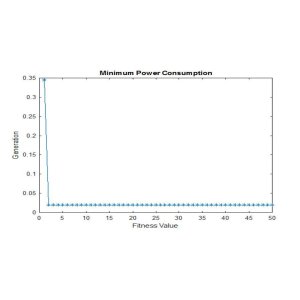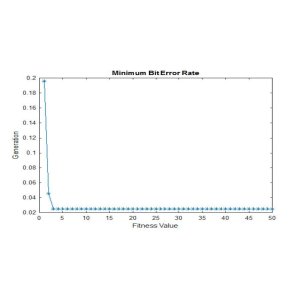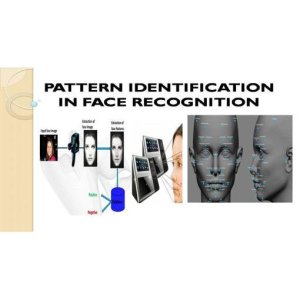Health Diagnosis and Treatment Recommendation System using CNN and Type-2 Fuzzy Logic
Problem Definition
The current state of the health care system is facing challenges in effectively diagnosing and assessing the risk of multiple diseases simultaneously. Due to the prevailing focus on detecting one disease at a time, there is a limitation in the system's ability to provide comprehensive care to patients who may be suffering from various health issues. This leads to a burden on both patients and healthcare providers, as they are required to go through multiple diagnostic processes to address each individual disease. The project seeks to address this limitation by enhancing the system to allow for the concurrent identification of heart, liver, and kidney diseases in patients. By doing so, it aims to provide a more holistic approach to healthcare, offering detailed assessments of disease stage and tailored recommendations for patient care.
Through the implementation of improved diagnostic tools and algorithms, the project strives to streamline the healthcare process and improve patient outcomes in a more efficient and effective manner.
Objective
The objective of this project is to enhance the current healthcare system by developing a system that can diagnose multiple diseases concurrently, specifically focusing on heart, liver, and kidney diseases. By using deep learning models and fuzzy logic in a two-phase system, the researchers aim to provide more efficient disease detection and reduce the burden on patients dealing with various health issues. The integration of advanced technologies such as CNN models and fuzzy logic in MATLAB will enable accurate disease identification, staging, and personalized recommendations for patient care. Ultimately, the project aims to improve patient outcomes and healthcare efficiency by offering a more holistic approach to healthcare through streamlined diagnostic processes.
Proposed Work
The project aims to tackle the current limitation of the healthcare system by developing a system capable of diagnosing multiple diseases concurrently. This innovative approach will enhance the efficiency of disease detection and reduce the burden on patients dealing with various health issues. By utilizing deep learning models and fuzzy logic in a two-phase system, the researchers plan to first identify whether a patient has heart, liver, or kidney disease using a CNN model, and then determine the disease stage and offer appropriate recommendations based on a Type-2 fuzzy logic system. The use of these advanced technologies in the biomedical field reflects a cutting-edge approach to healthcare, highlighting the potential for significant improvements in patient care and disease management.
The decision to use MATLAB for this project is strategic, as it offers a powerful platform for implementing complex algorithms and models required for disease identification and staging.
The integration of deep learning models in Phase 1, such as the CNN architecture, will enable accurate and efficient disease detection by analyzing various patient attributes. Additionally, the incorporation of fuzzy logic in Phase 2 will allow for a more nuanced assessment of disease progression and personalized recommendations tailored to individual patients. This comprehensive approach combines the strengths of both technologies to enhance the healthcare system's ability to provide timely and accurate diagnoses, leading to improved patient outcomes and overall healthcare efficiency.
Application Area for Industry
This project can be used across various industrial sectors, particularly in the healthcare industry, where the efficient diagnosis and assessment of multiple diseases concurrently is crucial. By implementing the proposed deep learning and fuzzy logic models, healthcare professionals can enhance their diagnostic capabilities and provide more accurate and comprehensive assessments to patients suffering from heart, liver, and kidney diseases. These solutions can also be applied in other industries such as pharmaceuticals and biotechnology for drug development and clinical trials, as well as in research institutions for analyzing disease patterns and trends. The benefits of implementing these solutions include improved accuracy in disease diagnosis, early detection of diseases, tailored recommendations for patient care, and ultimately, better outcomes for patients with multiple health conditions. Furthermore, the integration of deep learning and fuzzy logic technologies can streamline workflow processes, reduce the burden on healthcare professionals, and optimize resource allocation within different industrial domains.
Application Area for Academics
The proposed project has the potential to greatly enrich academic research, education, and training in the field of healthcare and medical diagnosis. By integrating deep learning models and fuzzy logic, this project offers a novel approach to diagnosing and assessing the risk of multiple diseases simultaneously, which is a significant advancement in the current healthcare system.
Academically, this project can contribute to the development of innovative research methods and simulations for disease diagnosis and staging. By utilizing Convolutional Neural Networks and Type-2 fuzzy logic systems, researchers can explore new ways of analyzing health data and improving diagnostic accuracy. This can lead to the development of more efficient and effective healthcare systems that can better serve patients suffering from multiple diseases.
In educational settings, this project can be used to train students in advanced data analysis techniques and the application of deep learning models in healthcare. It can provide a hands-on learning experience for students to understand how to integrate different technologies to solve complex problems in the medical field. Medical technology (MTech) students and PhD scholars can use the code and literature from this project to further their research in healthcare analytics and disease diagnosis.
The relevance of this project extends across various technology and research domains, including machine learning, healthcare informatics, and medical diagnostics. Researchers in the specific fields of medical imaging, disease modeling, and artificial intelligence can benefit from the methodologies and techniques used in this project to enhance their own research.
The future scope of this project includes expanding the dataset used for training the deep learning models, incorporating additional disease types, and improving the accuracy of the fuzzy logic system for disease staging. Further research can also focus on real-time implementation of the proposed system in clinical settings to evaluate its effectiveness in practical healthcare scenarios. This project opens up opportunities for collaboration between researchers, educators, and healthcare professionals to advance the field of medical diagnosis and patient care.
Algorithms Used
The significant algorithms and techniques used in this project are Convolution Neural Network (CNN) and Fuzzy logic. A CNN model is trained on various health attributes to discern the disease the patient is suffering from. The Fuzzy logic, specifically the Type-2 fuzzy system, is used to ascertain the disease level based on specific parameters and provide care recommendations based on the disease type and stage. The proposed system is designed in two phases— disease identification (Phase 1) and disease staging and recommendation (Phase 2). Phase 1 employs a CNN model to identify if the patient suffers from a heart, liver, or kidney disease, while Phase 2 uses a Type-2 fuzzy logic system to determine the disease level and provide suitable recommendations.
Keywords
SEO-optimized keywords: Deep Learning, Convolution Neural Network, Fuzzy Logic, Type-2 Fuzzy System, Biomedical Applications, Disease Diagnosis, Disease Staging, Patient Care Recommendations, Heart Disease, Liver Disease, Kidney Disease, Biomedical Health Systems, MATLAB, Disease Identification, Disease Assessment, Multi-Disease Diagnosis, Healthcare System Improvement, Disease Risk Assessment, Simultaneous Disease Detection, Disease Stage Analysis, Health System Efficiency, Innovative Health Solutions.
SEO Tags
problem definition, health care system, disease diagnosis, heart disease, liver disease, kidney disease, deep learning, convolution neural network, fuzzy logic, type-2 fuzzy system, biomedical applications, disease staging, patient care recommendations, MATLAB, research project, innovative solution, simultaneous disease identification, disease assessment, disease stage, patient health, biomedical health systems, research proposal, deep learning models, fuzzy logic implementation.
| Shipping Cost |
|
No reviews found!




















































No comments found for this product. Be the first to comment!